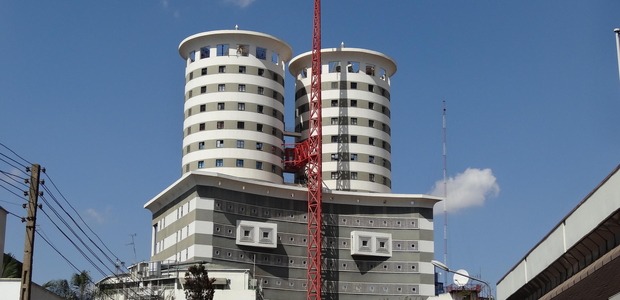advertisement
Digital Migration to blame for NMG’s 8% drop in pre-tax profits
On the television front in Kenya, during the period that we were off air, a lot of advertisers pulled out…

On the television front in Kenya, during the period that we were off air, a lot of advertisers pulled out and it was pretty much a wait and see attitude,” said CEO Joe Muganda while announcing the results on Thursday. “I am happy to report that we are back on track and I am sure when we will be reporting our full-year results, you will see a different picture. Despite the disruptions to our TV business, cash generated from operations increased.”
Mr Muganda was presiding over his first investor briefing since taking over as chief executive from his predecessor Linus Gitahi.
Group chairman Wilfred Kiboro said the two television stations that’s NTV and QTV returned profits for the three months to July, and they are expected to close the year in positive territory.
advertisement
“The digital migration process is now behind us and we can focus on how to grow the business going forward,” said Mr Kiboro, while describing Mr Muganda as the right person to lead the company.
Earlier in February, four TV stations owned by Standard Media Group, Nation Media Group and Royal Media Services went off air for the 18 days after the Supreme Court passed a ruling on 13th February that the analogue switch-off timelines would remain as scheduled by the Communications Authority of Kenya and ordered the three media houses to switch off their analogue signals on the same date.
The TV stations switched off their digital signals in protest against the CA’s decision to turn off their analogue signals. They were also opposed to pay- TV service providers carrying their content without consent.
advertisement
During its annual General meeting, which took place on June 5th, Nation Media Group chairman Wilfred Kiboro had said that the company hopes to reclaim viewership levels with the sale of the free-to-air set top boxes as some estimated two million people have been cut-off by pay-TV. The census showed there are about 4.5 million TV sets and there are estimated 2.2 million to 2.3 million set-top boxes in the country. This means there are about two million people out there who are not enjoying TV.
The decoders were set to retail at a price of Kshs 3,500 with no monthly subscription fee but since then nothing much has been said by the company in regards to this.
The government launched the digital broadcasting service in Kenya in 2009 following an ITU Member States at the Regional Radio communication Conference held in 2006, known as the GE06 Regional Agreement. During the conference member states set a deadline for 17th June, 2015 where all analogue TV signals were expected to be switched off worldwide, Kenya was able to meet the deadline though.